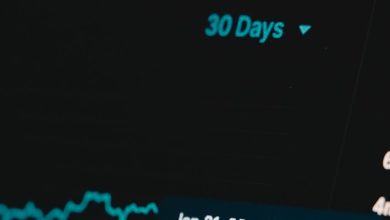High-Profile Hacks and Their Implications for the Industry

- Understanding the impact of high-profile hacks on consumer trust
- Examining the financial repercussions of major data breaches
- The role of cybersecurity regulations in preventing future high-profile hacks
- Case studies of recent high-profile hacks and their aftermath
- Exploring the evolving tactics of cybercriminals in targeting high-profile organizations
- Strategies for businesses to enhance their cybersecurity measures in light of recent high-profile hacks
Understanding the impact of high-profile hacks on consumer trust
High-profile hacks have a significant impact on consumer trust in the industry. When a well-known company falls victim to a cyberattack, it can shake the confidence of consumers who rely on that brand for their products or services. These breaches often result in sensitive information being compromised, such as personal data or financial details, which can lead to identity theft or fraud.
Consumers may feel betrayed by the company they trusted to keep their information secure, leading to a loss of trust in not only that specific brand but also in the industry as a whole. This lack of trust can have long-lasting effects, with consumers being more cautious about sharing their information online or making purchases from companies that have been hacked in the past.
It is essential for companies to take proactive measures to prevent cyberattacks and protect consumer data. By investing in robust cybersecurity measures and being transparent about any breaches that occur, companies can work to rebuild consumer trust and demonstrate their commitment to safeguarding sensitive information. Rebuilding trust after a high-profile hack is a challenging process, but it is crucial for maintaining a positive reputation and retaining loyal customers.
Examining the financial repercussions of major data breaches
When examining the financial repercussions of major data breaches, it becomes evident that these incidents can have a significant impact on the affected companies. The costs associated with a data breach can be substantial, including expenses related to investigating the breach, notifying customers, implementing security measures, and potential legal fees. In addition, companies may also experience a loss of revenue due to a damaged reputation and loss of customer trust.
Furthermore, data breaches can result in fines and penalties imposed by regulatory bodies for failing to protect sensitive information. These financial consequences can add up quickly and have long-lasting effects on a company’s bottom line. It is essential for organizations to prioritize cybersecurity measures to prevent data breaches and mitigate the financial risks associated with these incidents.
The role of cybersecurity regulations in preventing future high-profile hacks
Implementing cybersecurity regulations is crucial in preventing future high-profile hacks that can have detrimental effects on the industry. These regulations serve as a protective barrier against cyber threats and help organizations strengthen their security measures.
By enforcing compliance with cybersecurity regulations, companies can ensure that they are following best practices to secure their networks and data. This proactive approach can mitigate the risks associated with cyber attacks and prevent breaches that could lead to high-profile hacks.
Furthermore, cybersecurity regulations help standardize security protocols across industries, making it easier for organizations to collaborate and share threat intelligence. This collaborative effort can strengthen the overall resilience of the industry against cyber attacks.
Case studies of recent high-profile hacks and their aftermath
Recent high-profile hacks have sent shockwaves through the industry, highlighting the vulnerabilities that exist in even the most secure systems. These hacks have had far-reaching implications, affecting not only the companies directly involved but also their customers and the industry as a whole.
- One such case study is the Equifax data breach, where hackers gained access to sensitive personal information of over 147 million people. The aftermath of this hack included a significant drop in Equifax’s stock price, multiple lawsuits, and a loss of trust from consumers.
- Another notable hack was the ransomware attack on Colonial Pipeline, which disrupted fuel supply on the East Coast of the United States. This incident led to panic buying, fuel shortages, and highlighted the critical infrastructure’s vulnerability to cyber threats.
- In the case of SolarWinds, hackers compromised the company’s software updates to infiltrate numerous government agencies and corporations. The fallout from this breach included widespread data theft, espionage, and a reassessment of supply chain security practices.
These high-profile hacks serve as a wake-up call for the industry, emphasizing the need for robust cybersecurity measures and proactive risk management strategies. Companies must invest in cybersecurity training, regularly update their systems, and collaborate with industry peers to share threat intelligence and best practices.
Exploring the evolving tactics of cybercriminals in targeting high-profile organizations
As cybercriminals continue to evolve their tactics, high-profile organizations are increasingly becoming targets for sophisticated attacks. These cybercriminals are constantly finding new ways to exploit vulnerabilities in the systems of these organizations, often with devastating consequences. It is crucial for these organizations to stay ahead of these threats by implementing robust cybersecurity measures and staying informed about the latest trends in cybercrime.
One of the tactics that cybercriminals are using to target high-profile organizations is social engineering, where they manipulate individuals within the organization to gain access to sensitive information. By posing as trusted individuals or using deceptive tactics, cybercriminals can trick employees into divulging confidential information or clicking on malicious links. This highlights the importance of educating employees about the dangers of social engineering and implementing strict protocols for verifying the identity of individuals requesting sensitive information.
Another tactic that cybercriminals are employing is ransomware attacks, where they encrypt the organization’s data and demand a ransom for its release. These attacks can have severe financial and reputational consequences for high-profile organizations, making it essential for them to have robust backup and recovery systems in place. Additionally, organizations should regularly update their security software and conduct thorough risk assessments to identify and mitigate potential vulnerabilities.
Strategies for businesses to enhance their cybersecurity measures in light of recent high-profile hacks
Businesses must take proactive steps to enhance their cybersecurity measures in response to the recent surge in high-profile hacks. Implementing robust strategies can help safeguard sensitive data and protect against potential threats. Here are some key strategies for businesses to consider:
- Invest in cybersecurity training for employees to raise awareness about potential risks and best practices for data protection.
- Regularly update software and systems to patch vulnerabilities and stay ahead of emerging threats.
- Implement multi-factor authentication to add an extra layer of security for accessing sensitive information.
- Conduct regular security audits and risk assessments to identify and address any weaknesses in the cybersecurity infrastructure.
- Establish a response plan in case of a security breach to minimize the impact and quickly restore operations.
By taking these proactive measures, businesses can strengthen their cybersecurity defenses and reduce the risk of falling victim to high-profile hacks. It is essential to stay vigilant and continuously adapt to the evolving threat landscape to protect valuable assets and maintain customer trust.



